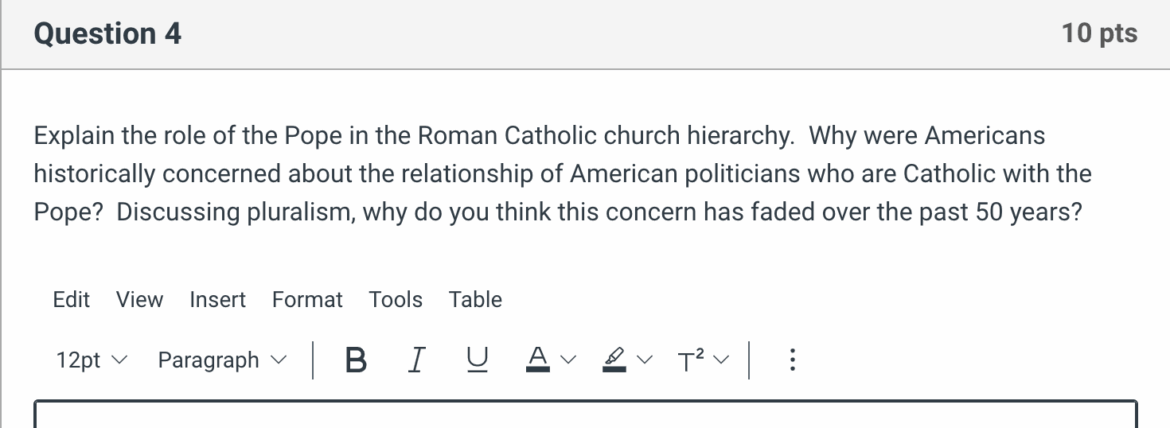The Roman Catholic Church, a spiritual entity that has persisted through millennia, is intrinsically linked to one individual—the Pope. This singular figure symbolizes not only the administration of the Church but also serves as a custodian of faith for millions worldwide. The puzzle of leadership within such a vast and intricate organization evokes curiosity and intrigue, leading us to explore the Pope’s multifaceted role. Why does this position captivate the imagination of so many? The answer lies deeply rooted in history, theology, and the cultural fabric of Christianity.
Historically, the foundation of papal authority can be traced back to Saint Peter, one of Jesus Christ’s apostles, who is often recognized as the first Pope. This direct lineage claims a divine ordination that positions the Pope as the successor of Peter, thus wielding significant spiritual authority. The claim that the Pope serves as Christ’s vicar on Earth resembles an intricate tapestry, woven with threads of tradition, scriptural interpretation, and ecclesiastical doctrine. This embodiment of leadership allows the Pope not merely to govern but to be perceived as a moral compass in an increasingly disoriented world.
The Roman Catholic Church is structured in a hierarchical manner, wherein the Pope reigns at its apex. Surrounding him is the Curia, a body of advisors and officials who assist in the administration of the Church’s vast responsibilities. This layered structure serves to streamline both spiritual and temporal matters. The Pope’s decisions shape doctrines, influence church policies, and sometimes even sway global political dialogues. Such reach amplifies the importance of his role, making it not only a spiritual position but also one of great secular influence.
Each Pope brings unique characteristics, visions, and priorities, yet they are bound by the Chalcedonian Definition of faith, a historical framework that dictates the core beliefs of Catholicism. The Pope also presides over the conclave, the assembly of cardinals that convenes to elect his successor. This careful orchestration reveals the significance of continuity within leadership, ensuring that the papal lineage adheres to deeply entrenched theological principles while adapting to contemporary challenges.
More than a mere figure of authority, the Pope operates as a global symbol of unity. In a world fraught with division, his role transcends geographical boundaries, offering solace and guidance to Catholics and non-Catholics alike. The Pope’s international travels and public addresses have the capacity to draw attention to pressing global issues, such as poverty, climate change, and peace. These actions bolster the Church’s position as a steadfast advocate for social justice, drawing the attention of those disillusioned with traditional political structures.
Moreover, the Pope possesses a profound responsibility in fostering ecumenism—the promotion of unity amongst Christian denominations. His dialogues with leaders from Orthodox, Protestant, and other faith traditions embody an earnest endeavor to bridge gaps and foster understanding. The significance of this role cannot be overstated. In an increasingly pluralistic society, the Pope’s outreach to diverse cultures and faiths enhances the Church’s mission to evangelize while promoting mutual respect and dialogue.
The Catholic faithful often find in the Pope a source of inspiration. His teachings, encyclicals, and homilies resonate deeply, providing guidance on ethical dilemmas of the modern era. The encyclical “Laudato si’,” which addresses environmental concerns, exemplifies how the Pope navigates contemporary issues with a theological lens. By articulating the Church’s stance on such matters, the Pope reinforces the idea that faith interweaves with all aspects of human existence, including stewardship of the Earth. This synthesis of spirituality and pragmatism serves to invigorate the faithful, prompting them to act in alignment with the Church’s mission.
The role of the Pope also embodies a captivating paradox: he is both an individual and a symbol. As a leader chosen among men, the Pope is fallible and human, yet as the vicar of Christ, he is perceived as infallible concerning doctrinal matters. This duality engenders a dynamic tension within the Church. Critics may question the implications of infallibility, yet it remains an essential tenet that helps followers navigate complex theological terrain. The collective narrative surrounding papal authority cultivates a deep-seated respect and reverence that underscores his role as a spiritual leader.
In addition to theological implications, the Pope is often viewed through a socio-political lens. His influence extends beyond ecclesiastical borders, prompting conversations about morality within societal structures. This is especially true in regions grappling with issues of justice, human rights, and equality. The Pope’s statements on these matters can stir public discourse, prompting the faithful to reassess their roles as active participants in society. Consequently, the Pope’s influence forms an intricate interplay of divine guidance, moral leadership, and cultural engagement.
In summation, the Pope’s role as the head of the Roman Catholic Church encompasses a complex blend of spiritual leadership, administrative oversight, and social advocacy. This fascination with the papacy is not merely rooted in the individual who occupies the position but also in what the office represents—a conduit for divine grace, a symbol of unity amidst diversity, and a moral beacon for followers. The significance of this role extends beyond the walls of the Vatican, shaping lives and cultures across the globe. Through the lens of Christianity, the Pope embodies a living testament to faith’s transformative power, guiding millions towards a path of hope, love, and redemption.



